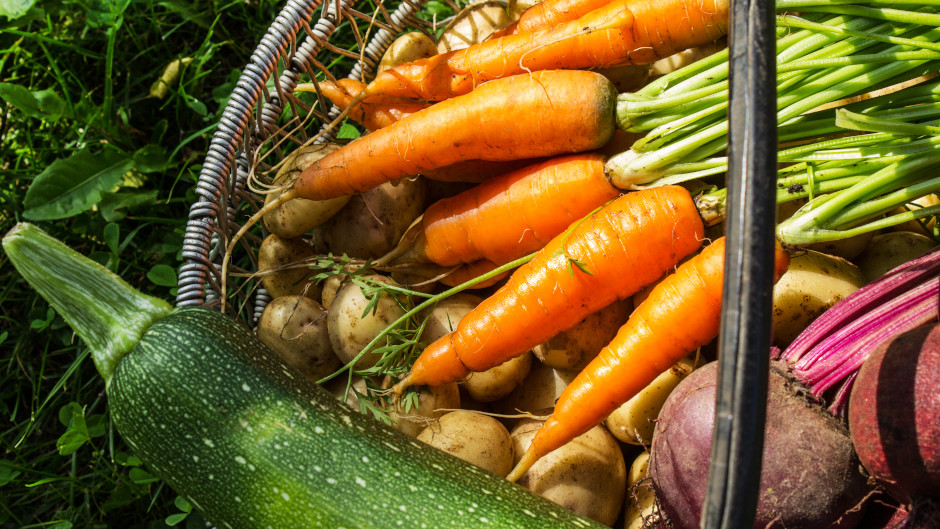Miami Law's Human Rights Clinic recently won a stunning victory for the human right to food in the U.S. when Maine voters chose to become the first state in the nation to enshrine the right to food in their constitution.
"This is a big victory not just for the right to food, but for economic, social, and cultural rights in the United States and beyond," said Denisse Córdova Montes, founder and director of the Miami Law Human Rights Program's Food Rights Initiative. "We feel honored to have supported Maine legislators, small-scale food producers, and activists organizing for the right to food get across the finish line and ensure the highest legal protection of the right to food for the people of Maine."
For more than a decade, Maine farmers and legislators have been advocating for the right to food at the municipal and state levels. Since 2011, over 100 towns have adopted various ordinances and resolutions promoting food sovereignty. In 2017, the legislature adopted the Maine Food Sovereignty Act to acknowledge these local ordinances.
In 2015 and again in 2019, Craig Hickman, a Democratic state senator and local farmer, introduced a resolution to enshrine the right to food in Maine's constitution. In 2021, Billy Bob Faulkingham, a Republican state representative and lobster fisher, re-introduced the same bill. Supporters of this bipartisan constitutional amendment sought to empower local farmers and take back control of food production and sale from large corporate agribusiness, considering Maine currently imports over 90% of the food they consume.
On November 2, 2021, those years of hard work and campaigning coalesced when the citizens of Maine voted an overwhelming "yes" to amend their state constitution to include the right to food. It is the first amendment of its kind in the U.S. and one that may inspire other states to follow suit. The entire amendment reads:
"All individuals have a natural, inherent and unalienable right to food, including the right to save and exchange seeds and the right to grow, raise, harvest, produce and consume the food of their own choosing for their own nourishment, sustenance, bodily health and well-being, as long as an individual does not commit trespassing, theft, poaching or other abuses of private property rights, public lands or natural resources in the harvesting, production or acquisition of food."
Miami Law clinic students weigh in
Since 2019, at least 15 Human Rights Clinic students, under the supervision of Córdova Montes, have worked in support of right to food efforts in the U.S. In Maine, students worked closely with Senator Hickman, and Representative Faulkingham, among other legislators and small-scale food producers, including Heather Retberg. She co-drafted the right to food constitutional amendment and helped create the state's groundbreaking 2017 food sovereignty law. Students helped research, advocate, and prepare various legal arguments to advance the fundamental right to food in the state.
In April 2021, upon request from Maine House Chair Representative Margaret O'Neil of the Joint Standing Committee on Agriculture, Conservation and Forestry of the Maine Legislature, the Human Rights Clinic submitted a legal memo to the Maine Attorney General's Office on the meaning of the right to save and exchange seeds.
The Committee on Agriculture, Conservation and Forestry explicitly cited the memo during the April 15, 2021, ACF Committee Work Session. It was instrumental in achieving a unanimous vote from the ACF Committee for the right to food resolution to be placed on the ballot in November 2021.
Clinic students' media blitz to gather support
Most recently, Human Rights Clinic students Lauren Edwards and Laura Leira, both 2Ls, and Maja Veselinovic, 3L, drafted op-eds and public comments for legislators and advocates, provided thorough legal analyses of the language used in the amendment to legislators, created educational fact sheets for general distribution, and helped to grow a social media campaign quickly. Córdova Montes also spoke in support of the Maine right to food amendment on Maine Public Radio and print media leading up to Maine's referendum.
"Food is life," said Hickman in 2019 testimony proposing the amendment to the Joint Standing Committee on Agriculture, Conservation and Forestry. "When one in four children among us goes to bed hungry every night, we must do better," he said. "Maine has all the natural resources and the hard-working, independent-spirited, and resourceful people who will make a way out of no way." He further described how enshrining the right is crucial because "obtaining the food we wish to eat, is so basic to our lives, our liberty and our property."
With Maine officially voting to enshrine the right to food in its constitution, many other states will be looking to follow in their footsteps. The Miami Law team is already getting to work with right to food educational advocacy and the drafting of municipal ordinances in West Virginia and Washington. Miami Law is also looking to focus the conversation on the right to food in our home state, Florida, by emphasizing the need to shift from a charity model to a human rights framework to address hunger and food insecurity.
Read more about Miami Law’s Human Rights Clinic

